Paul Levinson's Blog: Levinson at Large, page 237
November 23, 2016
The Crown on Netflix: Peerless
 We binge-watched The Crown on Netflix the past few nights. It was especially welcome, entertaining, instructive, and appealing in view of what's going on in our current political news in the United States, on other screens.
We binge-watched The Crown on Netflix the past few nights. It was especially welcome, entertaining, instructive, and appealing in view of what's going on in our current political news in the United States, on other screens.The protagonist in this riveting 20th-century docudrama is Queen Elizabeth II (well played by Claire Foy), but I found the Winston Churchill story - a portrait of his final years as Prime Minister, after being ousted by the British electorate at the end of World War II as reward his heroic service as PM and saving the nation during that war - to be a mini-masterpiece of politics and political philosophy in itself. Indeed, speaking of portraits, my favorite episode was the penultimate, and the story it told of Graham Sutherland's painting of Churchill in 1954, which Churchill despised. In this hour, we get a disquisition on the nature of art and the process of the painter and the subject - made especially compelling not only because the subject was Churchill, but because he was a painter by hobby himself. John Lithgow gives a tour-de-force performance of Churchill in this episode, and in fact whenever he appears on the screen any time in the series.
Other than Churchill, my favorite character in the series is a tie between Elizabeth and King Edward (David), who in 1936 abdicated to be with "the woman I love," Wallis Simpson (a divorcee), which resulted in Elizabeth's father becoming King and eventually Elizabeth Queen. Elizabeth and Edward are both bound by the monumental struggle was how to be a complete human being and wear the crown at the same time. In a peak conversation, Edward tells Elizabeth, who is rent by a dilemma about whether to support her sister Margaret's intention to marry Peter Townsend (a divorcee), that even in abdication, Edward still feels himself to be two people, person and King, and he misses the King every day.
History repeats itself. Edward and Margaret both want to marry divorcees, and Elizabeth is left in different ways to pick up the pieces both times. It's easy for us in the 21st century - with Elizabeth still Queen - to congratulate ourselves on our moral superiority, which doesn't frown on divorce any more, let alone it being so unacceptable in the royal family. That's progress, indeed.
But you know what? When I think about who will soon be President of the United States, and I compare him not to Churchill but the worst politician depicted in The Crown, that doesn't seem like progress at all, does it. See The Crown for an at-turns fascinating, at turns heart-breaking, narrative not only of how far we've come, but how far we've fallen.
Paul Levinson's books ... Paul Levinson's music
Published on November 23, 2016 11:16
November 21, 2016
Timeless 1.7: Stranded!
 A rollicking episode 1.7 of Timeless tonight, with our team stranded in 1754 in the French and Indian War.
A rollicking episode 1.7 of Timeless tonight, with our team stranded in 1754 in the French and Indian War.In terms of sheer action, this almost standalone episode was one of the best of the series so far, with Rufus having to cobble together a fix for the damaged machine, as well as tell the future when and how to expect them, and the rest of the team doing what they do best - speaking French (Lucy) and fighting off the bad guys (Wyatt) as enjoyably needed.
There are some fine new classic time-travel touches in this episode, my favorite being the time-capsule that Rufus buries deep in the ground with instructions for the future. It will end up in a Pittsburgh suburb, no longer inhabited by the Native Americans who play a major role in this story, along with the French. Rufus buries the capsule subject to a "protocol" which was designed to be implemented for strandings like this.
The last few minutes of the episode switch from swashbuckling to metaphysics, something that goes beyond the physics speciality in which Rufus excels. Lucy is feeling drawn into writing the diary which Flynn has shown her and told her she will write. The diary symbolizes everything that Lucy doesn't want - not only being connected to Flynn, but having her future prescribed to her.
Wyatt argues that nothing is ordained, and free will prevails. Of course, this is impossible to prove. If we do something, and say it's our free expressing itself, how can we know for sure that we weren't destined to do that anyway, and free is just a comforting illusion we draw upon and wrap ourselves in to make us feel better?
This is the essence of the classic behaviorist theory devised in the first half of the 20th century by John B. Watson and expanded by B. F. Skinner - that everything we do is in response to some kind of conditioning, whether we're aware of it or not. An issue of such complexity could never be resolved in just a few minutes of a time-travel television series, but it's great to see it raised, anyway.
See also Timeless 1.1: Threading the Needle ... Timeless 1.2: Small Change, Big Payoffs ... Timeless 1.3: Judith Campbell ... Timeless 1.4: Skyfall and Weapon of Choice ... Timeless 1.5: and Quantum Leap ... Timeless 1.6: Watergate and Rittenhouse

a time-travel agency in Riverdale ....
Paul Levinson's books ... Paul Levinson's music
Published on November 21, 2016 22:24
November 20, 2016
Westworld 1.8: Memories
 Much revealed in this excellent episode 1.8 of Westworld.
Much revealed in this excellent episode 1.8 of Westworld.Probably the most important: there are two kinds of programs afoot in Westworld, two kinds of stories (or two kinds of kinds of stories, to be more precise): Ford's and Arnold's. Ford's we pretty much know - though not the new story he keeps talking about - and Arnold's not much or any of it at all.
We learn from Ford that Arnold went crazy-mad over the paradox of programming beings that were sentient, yet in a way that keep them subject to programmer orders (the civil rights of robots, as I discussed in earlier reviews, and spelled out a little of in this paper).
So presumably in the minds of our major hosts, we have a war between these two types of programs - a war in each mind - which gives us a better but still not completely clear idea of the bicameral mind (ala Julian Jaynes) that we heard about some episodes back.
Whatever is actually going in each of these host's minds, we now know this: none of them can keep those deep memories totally submerged, however much Ford or Bernard may order them to do - or just move the memories down to the bottom of the little tablet screen. For Bernard, who we now know is a host, these unerasable memories include at least two murders of human beings, the second we saw last week, the first who knows when, presumably both at Ford's command, though we can't be sure about the first. For Maeve, it's the awful memory of the killing of her daughter by the Man in Black (for more about, see below). For Dolores, it's the memory of some kind of carnage in the town. Teddy may be having some of this double memory, too.
Significantly, Bernard can kill humans (presumably only at Ford's command, but who knows), and Maeve, even more profoundly, can kill in her own self protection - that, by the way, being a defining characteristic of life. Teddy definitely can not - at least, not the Man in the Black.
Which is the other big revelation: the Man in Black tells Teddy his back story, and his life as a human tycoon (hmm....). This sounds pretty convincing. But earlier, Ford was even more convincing about humans and androids actually being pretty similar, in that both live in stories that are constructed (presumably the main difference being that we humans construct most of our own stories.) Yet, I was just watching The Crown on Netflix, and struck by how much the royals are hostages to the stories that are obliged to follow. But back to Westworld: is the Man in Black just telling Teddy a story written by a programmer, or the true story of his human life?
Ford, again, says there's not all that much difference. My guess is the MIB is a human - but maybe it doesn't matter as much as we may think - maybe that's the message. I do know this series is a masterpiece already - a triumph of story telling (I guess a third kind of story) - and it's good was to see Banshee's Lili Simmons back on the screen!
See also Westworld 1.1: Isaac Asimov and Philip K. Dick Served Up by Jonathan Nolan, Lisa Joy, and J. J. Abrams ... Westworld 1.2: Who Is the Man in Black? ... Westworld 1.3: Julian Jaynes and Arnold ... Westworld 1.4: Vacation, Connie Francis, and Kurt Vonnegut ... Westworld 1.5: The Voice Inside Dolores ... Westworld 1.6: Programmed Unprogramming ... Westworld 1.7: The Story of the Story
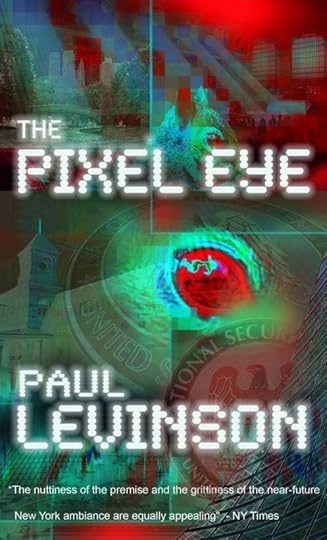
paradoxes of AI abound
Paul Levinson's books ... Paul Levinson's music
Published on November 20, 2016 19:47
November 19, 2016
Masters of Sex Season 4 Finale: Together at Last
 Well, it was nice to see the ending of the Season 4 finale of Masters of Sex last Sunday - which, in case you didn't know, featured Masters and Johnson together at last as man and wife.
Well, it was nice to see the ending of the Season 4 finale of Masters of Sex last Sunday - which, in case you didn't know, featured Masters and Johnson together at last as man and wife.This of course is no surprise, since in the real history upon which this series is based - but doesn't always adhere to - Masters and Johnson were, in fact, married. In the series, it took long enough for the two to get there, and this made the ending satisfying in a long overdue way.
But in many ways, the Art and Nancy story was more compelling, and certainly more surprising, since the couple, as far as I know, are fictitious. Their relationship - to Masters and Johnson - but, more important, to themselves - provided one of the most vivid tableaus on television of a couple who know each other very well, but not well enough, and in the end founder on about as fundamental a difference in a couple you could find.
Their ending was heartbreaking in a way that nothing between Masters and Johnson, certainly this season, has been, and not much on previous seasons, either. Kudos to Betty Gilpin and Jeremy Strong each for quietly fabulous and deeply memorable performances.
Looking forward to next season, it will be fun to see Masters and Johnson and their life together, not only outside of the lab, but publicly together, under one roof, in a way we haven't seen them. Meeting in smoky places (one of my favorite songs from the early 1960s - actually, of all time, though I'm not sure why) and in hotel rooms can get tedious (not the song - see below for the video), and there are no doubt great scenes in store in the story ahead for this couple.
It will also be good to see how their pioneering work fares in the 1970s - which, come to think of it, was when I first became admiringly aware of their work. In any case, here's a tip of the hat to those smoky places.
See also Masters of Sex 4.3: Hugh Hefner and Sammy Davis, Jr. ... Masters of Sex 4.8: "I Love You"
And see also Thomas Maier: Masters of Sex and Biography Come to Life ...Masters of Sex 3.1: Galley Slaves ... Masters of Sex 3.2: The Shah, the Baby, and the Book ... Masters of Sex 3.3: The Bookstore ... Masters of Sex 3.7: Going Ape ... Masters of Sex 3.9: Calling Hugh Hefner ... Masters of Sex Season 3 Finale: Cliffhanger
#SFWApro
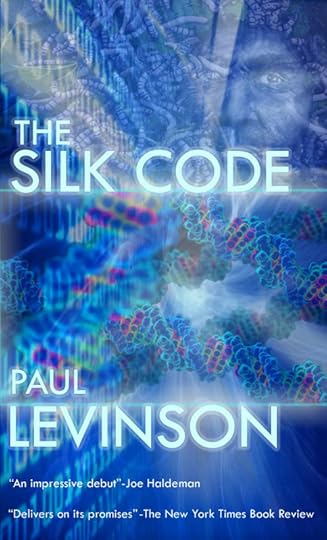
Paul Levinson's books ... Paul Levinson's music
Published on November 19, 2016 16:03
The Man Not in the Audience
You've probably heard all about this already. Last night, VP-Elect Pence took in a performance of Hamilton, and received some heartfelt advice from the cast. This morning, President-elect Trump, apparently not appreciating that advice at all, asked the cast to apologize - asked via Tweet, no surprise. You can read the details, as well as the Tweet, and see a video of the cast addressing Pence, over here.
But it's no surprise, either, that Trump did this. It will certainly not be the worst thing he'll say as President-elect and do as President - sadly, not by a long long shot - but it demonstrates, vividly, yet again, that winning the Electoral College vote has not made him a better man.
I guess that depends upon how far you have to go to become a better person - where you're starting from. Trump, judging by his campaign and the many things he said during the past year and more, started pretty low. Still, there was hope that even someone like Trump could be lifted by the awesome responsibility with which he's been entrusted.
I tend to be an optimist. I'm always hopeful that someone placed in a position of power will see and summon wisdom not apparent before assuming that new position. I extend this not only to the President-elect but his appointees so far.
But, if those appointees are any indication, and those tweets certainly are, we - America, the world, all good people who cherish freedom - are going to be in a very rough time of it. The President-elect, just in the brief time since he's been in that position, has lashed out not only at the theater but The New York Times. He's obviously uncomfortable with all media, other than the ones he controls. Our First Amendment will be in for the testing of its lifetime.
my thoughts about how Trump came to win the election - & 1st Amendment Paul Levinson's books ... Paul Levinson's music
But it's no surprise, either, that Trump did this. It will certainly not be the worst thing he'll say as President-elect and do as President - sadly, not by a long long shot - but it demonstrates, vividly, yet again, that winning the Electoral College vote has not made him a better man.
I guess that depends upon how far you have to go to become a better person - where you're starting from. Trump, judging by his campaign and the many things he said during the past year and more, started pretty low. Still, there was hope that even someone like Trump could be lifted by the awesome responsibility with which he's been entrusted.
I tend to be an optimist. I'm always hopeful that someone placed in a position of power will see and summon wisdom not apparent before assuming that new position. I extend this not only to the President-elect but his appointees so far.
But, if those appointees are any indication, and those tweets certainly are, we - America, the world, all good people who cherish freedom - are going to be in a very rough time of it. The President-elect, just in the brief time since he's been in that position, has lashed out not only at the theater but The New York Times. He's obviously uncomfortable with all media, other than the ones he controls. Our First Amendment will be in for the testing of its lifetime.
my thoughts about how Trump came to win the election - & 1st Amendment Paul Levinson's books ... Paul Levinson's music
Published on November 19, 2016 11:14
Rectify 4.4: Slow Motion
 I just want to go on record as saying that, as of episode 4.4, I think Rectify is moving too slowly in furthering its crucial central story.
I just want to go on record as saying that, as of episode 4.4, I think Rectify is moving too slowly in furthering its crucial central story.That story, of course, is the story that is lurking behind every episode, every scene just about, in this superb and unique series. Did Daniel kill Hanna?
Episode 4.4 was excellent in many ways. Daniel and Chloe were beautiful, even heart warming, together. The Holden family thinking of selling the business was good to see. Even Tawney in the hospital, and what it taught her - though a little obvious - worked well. The conversation from everyone, but especially Daniel, was sage and droll, just as we've come to expect, and one of the hallmarks of this fine show.
But other than Jon giving us just a soupcon of his investigation, if you can even it that at this point, we got none of the pressing, transcendent issue. Did Daniel kill Hanna?
Maybe the producers are trying to tell us that, ultimately, Rectify is not the story of whether Daniel is guilty or innocent, but the story of this incredibly sensitive man, a poet in his soul, on death row for so many years, and now out in a world which both fascinates and repels him. There's no doubt that Rectify is that riveting story, and many other stories, too, but none of those are mutually exclusive with learning, at last, if Daniel killed Hanna. And all of those are brought into sharper focus by the question of Daniel's guilt or innocence.
I'm looking forward to, if not complete closure, at least some very substantial progress on that question before this remarkable series concludes.
See also Rectify 4.1: Rummy
And see also Rectify 3.1: Stroke of Luck ... Rectify 3.2: Daniel and Amantha ... Rectify 3.5: Finally!
And see also Rectify 2.1: Indelible ... Rectify 2.2: True Real Time ... Rectify 2.3: Daniel's Motives ... Rectify 2.4: Jekyll and Hyde ... Rectify 2.6: Rare Education ... Rectify 2.7: The Plot Thickens ... Rectify 2.8: The Plea Bargain and the Smart Phone ... Rectify 2.9: Dancing in the Dark ... Rectify Season 2 Finale: Talk about Cliffhangers!
And see also Rectify: Sheer and Shattering Poetry ... Rectify 1.5: Balloon Man ... Rectify Season 1 Finale: Searingly Anti-Climactic

another kind of capital punishment
#SFWApro
Paul Levinson's books ... Paul Levinson's music
Published on November 19, 2016 09:46
November 18, 2016
Frequency 1.7: Snags
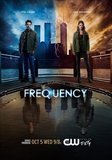 Frequency 1.7 was in something of a lull on Wednesday night, with a good enough personal story, but little furthering of the time-travel (information from future to the past) story, and not too much in the hunt for the serial killer, either.
Frequency 1.7 was in something of a lull on Wednesday night, with a good enough personal story, but little furthering of the time-travel (information from future to the past) story, and not too much in the hunt for the serial killer, either.This gets back to the fundamental challenge of time travel in a television series, and explains why Quantum Leap did well and Timeless is currently doing well with a different time-travel story each episode. 12 Monkeys on SyFy is like Frequency, with one continuous, central plot, and 12 Monkeys adheres to this with episodes that are always exciting, metaphysically bizarre, and sometimes over the top.
Frequency has a harder job of this. In 12 Monkeys, our heroes and heroines are struggling literally to save the world - and, in the second season, even time itself. Frequency has a much narrower purview, and it's tough to keep the story pulsing in that more limited frame.
There's also a disproportion between the two major characters - Raimy and Frank - which I don't recall in the movie, in which John (Frank's son) and Frank had more equal roles, at different ends of the seesaw of time. In the television series, Raimy is the more interesting character, but I'm not sure why, since Frank is the only one who can change history - nab the serial killer before he takes Raimy's mother.
There's still plenty of room for course correction and development in the series. I was disappointed to see that Frequency was not picked up for a full 22-episode first season, which instead will be limited to 13. That's ok - there are lots of outstanding 13-episode or even fewer-episodes-per-season series - including 12 Monkeys - and I'm looking forward to more of Frequency.
See also Frequency 1.1: Closely Spun Gem ... Frequency 1.2: All About the Changes ... Frequency 1.3: Chess Game Across Time ... Frequency 1.4: Glimpsing the Serial Killer ... Frequency 1.5: Two Sets of Memories ... Frequency 1.6: Another Time Traveler?
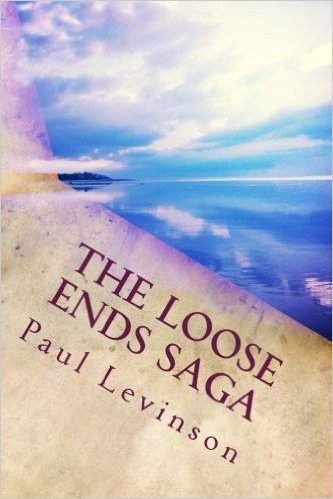
more time travel
Paul Levinson's books ... Paul Levinson's music
Published on November 18, 2016 11:07
November 17, 2016
Designated Survivor 1.7: Reassuring Fiction
 I know I'm sounding like a broken record already, but Designated Survivor is almost relaxing and definitely a pleasure to watch in comparison to what's really going on with our presidency right now.
I know I'm sounding like a broken record already, but Designated Survivor is almost relaxing and definitely a pleasure to watch in comparison to what's really going on with our presidency right now.The components of episode 1.7 were not even that special or unusual - the paternity of Kirkman's son, the double-agent sports hero, the kidnapping of the FBI guy's son to exert crucial power over him - we've seen all of that before. But it was strangely reassuring to see all of that against the Kirkman presidency.
And that's because Kirkman, notwithstanding the catastrophic way he came to power, is the kind of person we'd love to have in the White House. He's thoughtful, sensitive, and aware at every moment of his immense responsibilities. We don't really know what President-elect Trump is like on the inside, but certainly what he projects doesn't hold a candle to Kirkman.
It doesn't hurt, either, that Kiefer Sutherland is really putting in a fine performance in this role. He evinces just the right mix of anger, compassion, even brief confusion just when it's needed. The result is that we feel the country is in good hands.
And that's impressive, given the challenges that Kirkman and America face in this narrative. The man on track to becoming Vice President and a heartbeat away from the Presidency is part of an evil, murderous operation indeed. And that's what sets Designated Survivor off from House of Cards, where the evil comes from the President himself.
I'm really enjoying this mix of 24 and House of Cards which has a style and flavor all it own.
See also Designated Survivor: Jack Bauer Back in the White House ... Designated Survivor 1.2: Unflinching and Excellent ... Designated Survivor 1.4: "Michigan's on the Verge of Anarchy" ... Designated Survivor 1.5: The Plot Thickens ... Designated Survivor 1.6: The Governors

terrorist squirrels and bombs in NYC
#SFWApro
Paul Levinson's books ... Paul Levinson's music
Published on November 17, 2016 23:07
The Affair 3.1: Sneak Preview Review
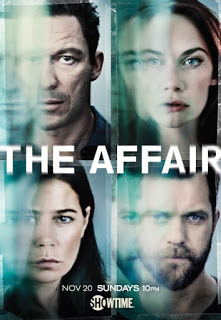
Well, I couldn't resist watching the first episode of The Affair season 3 on Showtime On Demand - it debuts on regular Showtime this Sunday - and giving you my review. In a phrase, it was different and excellent. Spoilers of course follow in the longer review below ...
The biggest difference is in the structure of the narrative, with the first hour featuring only Noah and his perspective. I didn't mind that at all, and, in fact, it was good to get a more sustained view of Noah.
He's out of prison, and the flashes around in time are flashbacks to when he was behind bars, instead of flashbacks to the future, concerning the who-killed-Scotty case, which was the pattern in the first two seasons. The just-out-of-prison motif gives The Affair a touch of Rectify's ambience, and some of the scenes are almost as intense in their own way.
Noah's an adjunct professor, at an unnamed college in New Jersey, but the campus looks 100% like the Rose Hill Campus of Fordham University in the Bronx - where I'm a Professor of Communication and Media Studies - because indeed it was. I'll let you know should I run into Noah or anyone else on the show.
The classroom in which he taught, by the way, is actually not usually used for classes, but for high-level administrative meetings, and but it was cool to see Noah teaching in there, anyway. His teaching about writing also gives us another good angle on the writerly life, which has been a strong suit of the series, especially in season 2.
Great conversations abound, inside and outside the classrooms, and a standout was a dinner with Noah, a French female professor (she likes Noah and invited him and the students to a little dinner party in her home), and several students discoursing about male-female relationships, attitudes, and appropriate behavior, with one of the guys, for example, saying he doesn't like asking for permission before making a move because that's "not sexy," and one of the women explaining how, as a woman, she always feels vulnerable.
Meanwhile, we've seen nothing of Alison and Cole, and even Helen had little screen time - which means we're in for some revelations ahead.
I have a feeling we're in for a great and surprising season this year, and I'm looking forward to more.
See also The Affair 2.1: Advances ... The Affair 2.2: Loving a Writer ... The Affair 2.3: The Half-Wolf ... The Affair 2.4: Helen at Distraction ... The Affair 2.5: Golden Cole ... The Affair 2.6: The End (of Noah's Novel) ... The Affair 2.7: Stunner ... The Affair 2.8: The Reading, the Review, the Prize ...And see also The Affair Premiere: Sneak Preview Review ... The Affair 1.2: Time Travel! ... The Affair 1.3: The Agent and the Sleepers ... The Affair 1.4: Come Together ... The Affair 1.5: Alison's Episode ... The Affair 1.6: Drugs and Vision ... The Affair 1.7: True Confessions ... The Affair 1.8: "I Love You / I Love You, Too" ... The Affair 1.9: Who Else on the Train? ... The Affair Season 1 Finale: The Arrest and the Rest
podcast review of every 2nd season episode
podcast review of every 1st season episode



the Sierra Waters time-travel trilogy
Paul Levinson's books ... Paul Levinson's music
Published on November 17, 2016 09:46
November 14, 2016
Timeless 1.6: Watergate and Rittenhouse
 A set-up for what could have been an incredibly timely Timeless episode 1.6 tonight - our team goes back to find the missing 18.5 minutes in the notorious Nixon Watergate tape. I mean, I've saying that the worst President we had prior to the President-elect was Richard Nixon, and we did survive that. What more could you ask for in relevance in an episode of a TV series recorded months ago and written well before that?
A set-up for what could have been an incredibly timely Timeless episode 1.6 tonight - our team goes back to find the missing 18.5 minutes in the notorious Nixon Watergate tape. I mean, I've saying that the worst President we had prior to the President-elect was Richard Nixon, and we did survive that. What more could you ask for in relevance in an episode of a TV series recorded months ago and written well before that?Well, what we got was a pretty good show, with little relevance to Nixon and Watergate, except for the missing minutes revealing that Nixon was talking about Rittenhouse. That's a nice touch, and leads to a further revelation that Rittenhouse has been around since the American Revolution, which now makes Timeless another kind of secret society in America show - that in addition to being a time travel story.
I still would have loved to see Nixon, Kissinger, Agnew, maybe Walter Cronkite on television in 1972 - or even Woodward and Bernstein - but all we got was Mark Felt in a brief scene. Because, for whatever reason, Timeless decided to make this episode more about the internal workings of the story than about the specific Nixon issue at hand.
There's a good surprise at the end - good, though, not because it was surprising (it was pretty obvious) but because it deepens Lucy's character, or makes her even more of a major player in this story than she was before. We also learn more about what Flynn has been reading in the journal Lucy hasn't yet written.
So where do we stand now? Rittenhouse was running Nixon, and has been doing that sort of thing since the birth of our nation. But when did that group originate? Was it in the future, and they traveled back to the past, or ... Not known, as yet. But I'm also wondering - did they have a hand getting Trump elected by the electoral college? Hey, that still hasn't quite happened yet, and you never know ...
See also Timeless 1.1: Threading the Needle ... Timeless 1.2: Small Change, Big Payoffs ... Timeless 1.3: Judith Campbell ... Timeless 1.4: Skyfall and Weapon of Choice ... Timeless 1.5: and Quantum Leap

time-travel and Presidential elections - for real
Paul Levinson's books ... Paul Levinson's music
Published on November 14, 2016 22:49
Levinson at Large
At present, I'll be automatically porting over blog posts from my main blog, Paul Levinson's Infinite Regress. These consist of literate (I hope) reviews of mostly television, with some reviews of mov
At present, I'll be automatically porting over blog posts from my main blog, Paul Levinson's Infinite Regress. These consist of literate (I hope) reviews of mostly television, with some reviews of movies, books, music, and discussions of politics and world events mixed in. You'll also find links to my Light On Light Through podcast.
...more
- Paul Levinson's profile
- 342 followers



